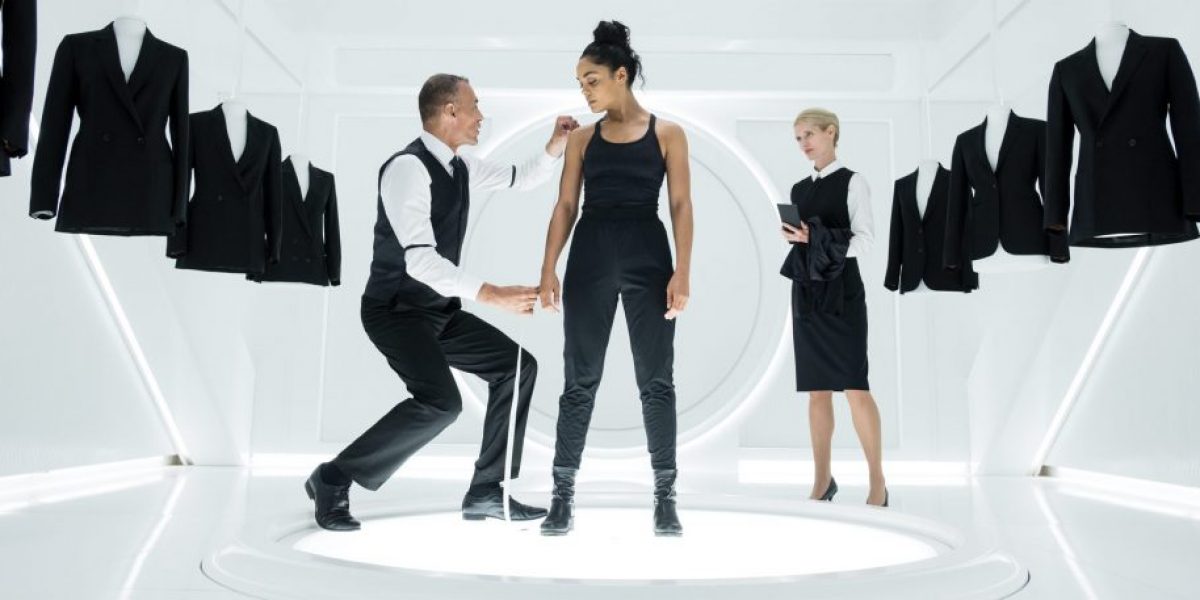Tessa Thompson’s Triple Threat
Film franchises are the resting pulse of the Hollywood box office. Widespread popularity, big-time budgets, and of course longevity with sequels, prequels and spin-offs. If you’re an actor and you break into a film franchise, the table’s been pretty well set. You’re getting paid, and millions and millions of eyes will know your name.
Rocky. Men In Black. The Marvel Cinematic Universe. Any one of those would be great.
Tessa Thompson’s managed to star in all three.
Image Credits: Film stills all from Men in Black: International, in cinemas now
It’s been a meteoric rise for the 35-year-old actress from Los Angeles – something that Tessa clearly understands.
As she makes her ascendency to the top of Hollywood stardom, Tessa has championed the importance of diversity and pay equity, becoming a symbol of empowerment in the process.
It’s rather fitting that as she writes her story in Tinseltown, that’s where it all began for Tessa.
Born October 3, 1983 in Los Angeles, Tessa was raised by her African-Panamanian father, Marc. Thanks to his background as a singer and songwriter, Tessa’s fascination with the arts and entertainment industry was instilled from a young age.
While her parents divorced when she was only a toddler, Tessa’s relationships with them remained strong throughout her childhood. She would divide her time between LA where she lived with her father and New York, where her mother resided.
Although Tessa was involved with music and stage production from a young age, she surprisingly didn’t choose it as her initial career path.
Perhaps inspired by her parents’ diverse backgrounds, including her mother’s Mexican-European descent, she graduated from Santa Monica College with a degree in cultural anthropology – which, no doubt, helped shape Tessa’s take on intersectional feminism.
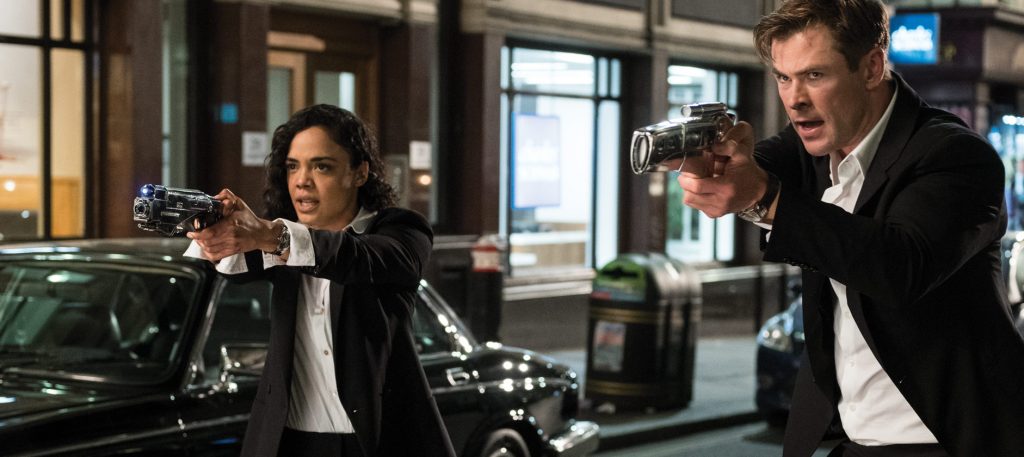
Before Tessa hit the big screen with her first movie appearances in 2006, she had a small but significant part in Veronica Mars a year prior. Playing the role of Jackie Cook, Tessa proved her acting chops alongside Kristen Bell in this critically acclaimed mid-noughties cult classic.
Guest appearances on Grey’s Anatomy soon followed and Tessa quickly built a steady resume.
To date, Tessa has played over 58 roles, including her work in notable titles like Dear White People, Creed, Creed II, Thor: Ragnarok, Avengers: Endgame, Men in Black: International, and HBO’s Westworld.
Two new movies, “Passing” and “Sylvie”, are currently in production and she’s currently cast as the voice of Lady in the soon-to-be-released remake of Lady and the Tramp.
Breaking into the house that Mickey built is no easy feat, and being entrusted with a lead role in a Disney film is in full credit to the skill and star power Thompson brings.
Just another film franchise to add to the list.
We could keep talking about the “what”, with Tessa Thompson, but it’s the “why” that’s far more interesting.
The Point of a Difference
Nestled into her long list of starring roles are many parts that may have received little acclaim, but hold great significance. Given her own diverse background, it’s clear that Tessa’s felt compelled to take on a diverse number of roles.
Jumping not only from drama and romance to horror and thriller, Tessa has also taken on parts that many others would not–and could not–accept. One early example is For Colored Girls, a 2010 movie that explores the issues that impact women, especially women of colour, in today’s world.
“It’s a really beautifully written, poignant exploration into what it’s like to be a woman”, Thompson shares.
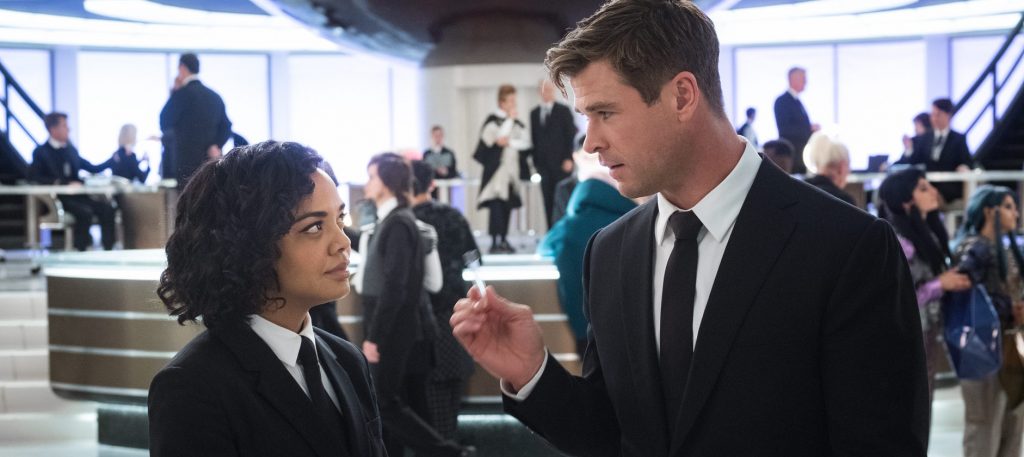
Tessa starred alongside the likes of Janet Jackson and Whoopi Goldberg under the direction of Tyler Perry. The movie left critics torn, but most criticism was directed at Perry’s approach to adapting the Obie-winning stage play (originally titled For Colored Girls Who Have Considered Suicide When the Rainbow Is Enuf), while all seem floored by all of the actresses’ bold work.
In interviews since, Tessa has revealed that the issues explored in For Colored Girls and other works hit close to home.
In a recent interview with Marie Claire, she spoke on the pertinent issue of pay equity, stating: “When we talk about issues of pay equity, that means something different to Natalie Portman than it does to me.”
Tessa explained, “[We women of colour] are so far away from that …Women of colour are still fighting for the same visibility and jobs.” She separated the two issues, pointing out that the gender pay gap is an entirely different battle and that “racial pay disparity is still a huge problem.”
Make an Impact in Unexpected Ways
There is no doubt that Tessa has made an impact on Hollywood. She’s played fan-favourite characters, but her lesser-known and less-acclaimed roles have had just as big of an impact, if not more so, than her work in popular films.
With that said, Tessa admits that landing the role on Veronica Mars was a pivotal point in her career and actually further inspired her to pursue complex, groundbreaking characters.
In an interview with Vanity Fair, Tessa reflected: “I think as an actor, when you’re starting off early in your career, you’re kind of just seeing what lands. But Veronica Mars definitely primed me to look for surprising, dynamic women. It took me a while to realise how cool that job was.”
She also explained that even in her more major roles like Bianca in Creed, she worked directly with directors to help avoid the typical cliches of a female character “who just moves the story along for the male lead.”
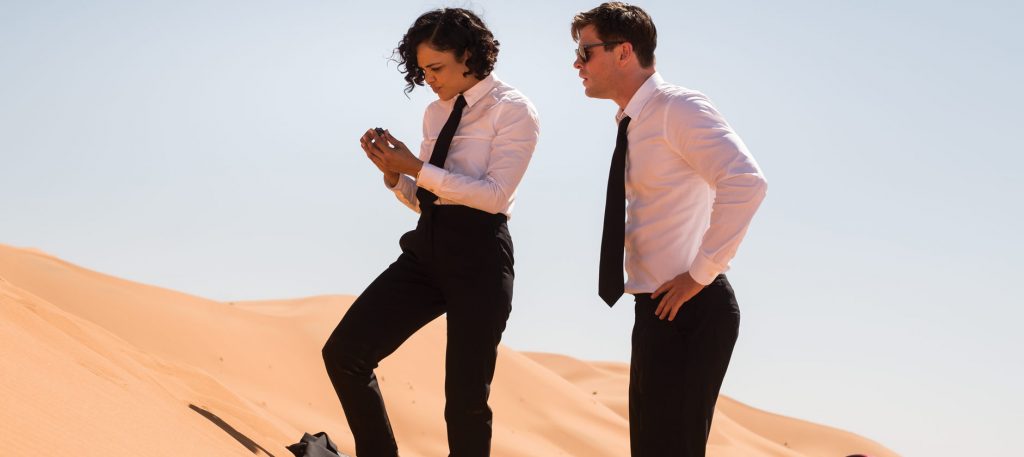
With Creed specifically, she explained that she worked closely with director Ryan Coogler.
“Ryan wanted to create, in collaboration with me, a character that had her own life going on. A lot of that work we did together.” When Tessa first took on the role, she explained her concern that Bianca would just be seen as the “boxer’s girlfriend.”
“The danger with a role like that is you could end up with a female character that is at home, concerned for her lover, or is nagging him about not taking the next fight. Some people talked about how she sort of disappears from the third act of the film. For us, it was really intentional in the sense where he does something that kind of pisses her off, and so she goes and decides to live her own life.”
Tessa speaks highly of both Coogler and Michael B. Jordan, who collaborated with her to form a character that was anything but the cliche female partner.
“Ryan wanted to find something so that she paralleled Adonis, in the sense that she had something she was fighting for—her career and making music—and something that she was fighting against, which turned out to be progressive hearing loss.”
Tessa brought her personal life into the part to inspire the formation of Bianca’s character. “When we first started talking about what could complicate her, one of the first ideas that came up was: maybe she’s a single parent. My mom raised me and my sister. My dad was in my life, but he wasn’t my primary parent growing up, and so that was something I could speak to and understand.”
Together Ryan and Tessa used that as a foundation for the character of Bianca – but there was still room to push it further.
Coogler’s wife, Zinzi Evans, works as a sign-language interpreter. Tessa explained that, as they “kept digging” for the right conflict, Ryan pitched the idea to her, saying: “Well, would you feel comfortable with her dealing with progressive hearing loss?”
In love with the unexpected twist and another dimension of diversity, Tessa thought that was a fantastic idea. “I’d never seen a love interest in a film wear a hearing aid. That’s not something that you would think, particularly in a big sports movie, would be palatable enough for an audience. I just felt really grateful to get to do something that, in the context of a film like that, [it is] pretty unique and kind of risky.”
Even though the film did not dig deep into some of Tessa’s own personal challenges, as she told Net-A-Porter, “My character Bianca is close to me. She enjoys solitude, has dreams of making a mark, and she’s somebody that is cautious with her heart.”
Her Own View
Beyond her work in developing Bianca’s character for the Creed franchise, Tessa has worked to put her ideas out there for other roles, too. At a red carpet event for the film Men In Black: International, Tessa praised its increasing inclusion of female cast members and its improved focus on the character development of female characters.
At the event, she even confessed an attempt to change the “Men in Black” title to something more inclusive, joking at the idea of changing it to “People in Black” but poking fun that P.I.B.
“sounds like a sandwich” and would never work for the audience. She also mentioned “Humans in Black,” but laughed it off, stating: “but that’s H.I.B. and [that] sounds like something you don’t want to get.”
Her announcement showed off her sense of humour and continued passion for inclusion.
“I think we could maybe change the name at some point, but the truth is the presence of women in the movie is really significant, and I hope we can get to a space where it’s not noteworthy when women topline sci-fi and genre films. And I think a film like this helps us get there.”
Fighting Diverse Issues in Diverse Ways
Tessa Thompson is more than just an actress and also more than a singer and songwriter, but she uses all of these platforms to reach her audience and get her powerful messages across, Tessa says it best herself:
“This is not just a job, this is my life…So, I’m like, how do I want to spend it? What do I want my story to be?”
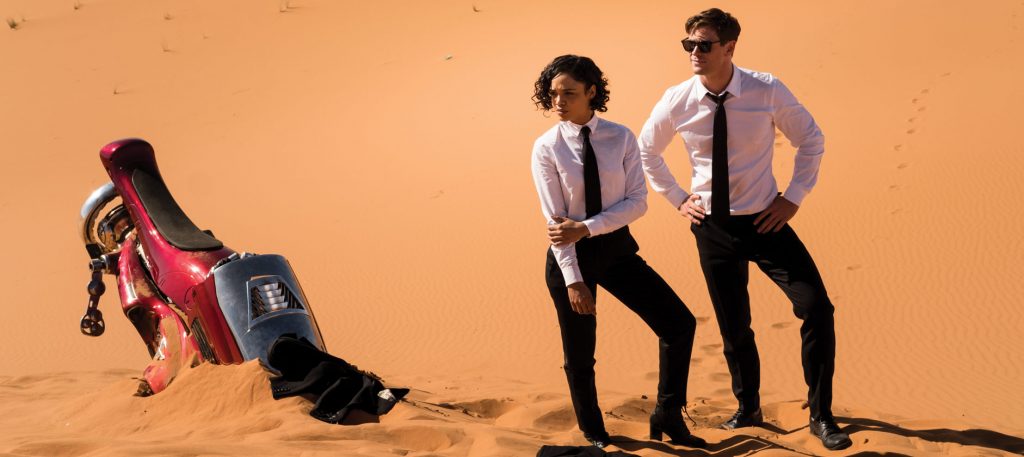
Her efforts towards inclusion aren’t limited to her work on screen, either. Tessa has a close relationship with singer Janelle Monáe. She is featured prominently in the 2018 music video release for Dirty Computer. “Isn’t it such a good record? I am so proud to have been involved,” Tessa beams.
“The album is a riotous celebration of femininity, queerness, sexual fluidity and self-acceptance, with gleefully homoerotic content.”, describes Net-A-Porter Off-screen as well, Tessa stays true to the changes she is working to inspire, being an outspoken member of the Time’s Up movement.
It’s clear that her own open-minded upbringing definitely played a major part in Tessa’s drive for inclusion. “In my family, you can be anything you want to be. I’m attracted to men and also to women. If I bring a woman home, or a man, we don’t even have to have the discussion.”
Admittedly, what makes Tessa the happiest of all is that she knows her work is making a difference. “I get text messages from friends that are like, ‘Would you please let Janelle know I came out to my family because of her?’”
In an industry that claims to be inclusive–but often comes up short with award shows that continue to be dominated by mainly male, and mainly white, actors–Tessa is joining the fight for true equality and leading the battle with bold, mould-breaking flair.
Hollywood’s been in dire need of stars that shake the patriarchy, and can inject it with vibrancy, sass and a refreshing point-of-view – a far cry from what is traditionally “stale, male and pale”.
“I’ve always been conscious of the ways identity is a creation. Maybe that’s what attracted me to acting. I’d look at people and wonder how they made themselves”.
Tessa made herself.
And it’s her particular background and life experience that helped elevate her to this point, and will keep pushing her to greater heights.
Her unique and complex ties to race, gender, and sexual issues give her a tremendous point of difference and diversity of thought. It’s what gives her an edge to approaching roles.
Tessa Thompson is a special kind of star.
A star that you can build your franchise, excuse me, franchises upon.
